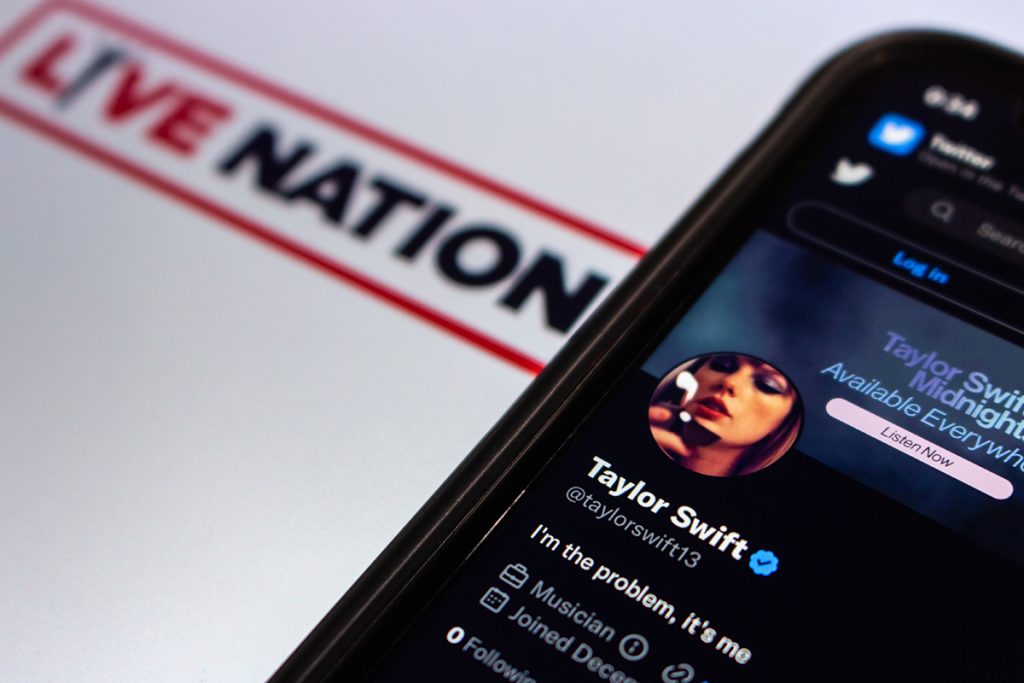In a groundbreaking move, Live Nation, the parent company of Ticketmaster, is facing a significant legal challenge as the US government, along with 30 state and district attorneys general, files an antitrust lawsuit against the entertainment giant. Lodged in New York, the lawsuit alleges that Live Nation has leveraged its market dominance to the detriment of concert attendees nationwide.
At the core of the allegations are claims that Live Nation’s practices have stifled competition, resulting in a slew of issues including inadequate customer service, complex pricing structures, high ticketing fees, and limitations on ticket resales. Beyond seeking monetary damages, the lawsuit aims to instigate substantial changes in Live Nation’s operations, potentially reshaping the dynamics of the live events industry.
The accusations against Live Nation are serious, with prosecutors asserting that the company orchestrated a plan to monopolize the ticketing and live events sector. This purported strategy involved securing exclusive deals with major venues, effectively locking out competitors and controlling the ticket distribution for events across the country.
This legal action comes after years of criticism directed at Live Nation, particularly following incidents such as the Ticketmaster glitches during Taylor Swift’s “Eras” tour in 2022. These incidents shed light on what many perceive as a lack of competition in the industry, leading to widespread frustration among fans and artists alike.
Live Nation vehemently denies the allegations, dismissing them as “baseless” and arguing that the lawsuit overlooks genuine concerns of fans, instead focusing on legal technicalities. Nonetheless, the news has had a tangible impact on Live Nation’s stock, which saw a 5% decline following the lawsuit announcement.
Musicians have also voiced their discontent with Live Nation’s practices, with some expressing frustration publicly. Taylor Swift, for instance, took to Instagram to criticize the company following the Ticketmaster debacle, highlighting its adverse effects on both artists and fans.
This isn’t the first time Live Nation has faced scrutiny over its business practices. The company’s merger with Ticketmaster in 2010 raised antitrust concerns, amid fears of a monopoly in the live events market. Now, more than a decade later, those concerns appear to have materialized, prompting regulatory intervention.
The lawsuit has garnered widespread support from antitrust advocates, seen as a necessary step to address Live Nation’s dominance. It also reflects broader efforts by the Biden administration to bolster antitrust enforcement and tackle consolidation issues across various sectors.
According to the lawsuit, Live Nation’s influence extends beyond ticketing, with the company directly managing numerous artists and controlling a significant portion of concert promotions and venues in North America. Through Ticketmaster, Live Nation also holds sway over primary ticketing for most major concert venues.
The involvement of multiple states and districts underscores the widespread apprehension regarding Live Nation’s practices. New York Attorney General Letitia James, a lead plaintiff in the case, has called for a “new era” in the live events industry, signaling regulators’ commitment to holding Live Nation accountable.
As the legal proceedings unfold, fans and industry observers will be closely monitoring the implications for the future of the live events market. While the outcome remains uncertain, it’s evident that Live Nation’s unchecked dominance may be facing significant challenges ahead.


